https://acrobat.adobe.com/id/urn:aaid:sc:VA6C2:b842d6a2-bf22-4e4a-9d75-43f6a5b13010
Author: Branzell, Alex
A New Human Rights Education Program to Promote Civic Engagement: Human Rights Close to Home
Checking In With The U.S. Treasurer
Governor Lamont Announces Kiana Foster-Mauro Is Connecticut’s 2024 Teacher of the Year
https://portal.ct.gov/Office-of-the-Governor/News/Press-Releases/2023/10-2023/Governor-Lamont-Announces-Kiana-Foster-Mauro-Is-2024-Teacher-of-the-Year
Many Global Corporations Will Soon Have to Police Up and Down their Supply Chains as EU Human Rights ‘Due Diligence’ Law Nears Enactment
https://theconversation.com/many-global-corporations-will-soon-have-to-police-up-and-down-their-supply-chains-as-eu-human-rights-due-diligence-law-nears-enactment-202706
Human Rights & Cultural Resistance through Theatre
Wednesday, April 19, 2023
12:00 pm - 1:30 pm
Nafe Katter Theatre
UConn Fine Arts Complex
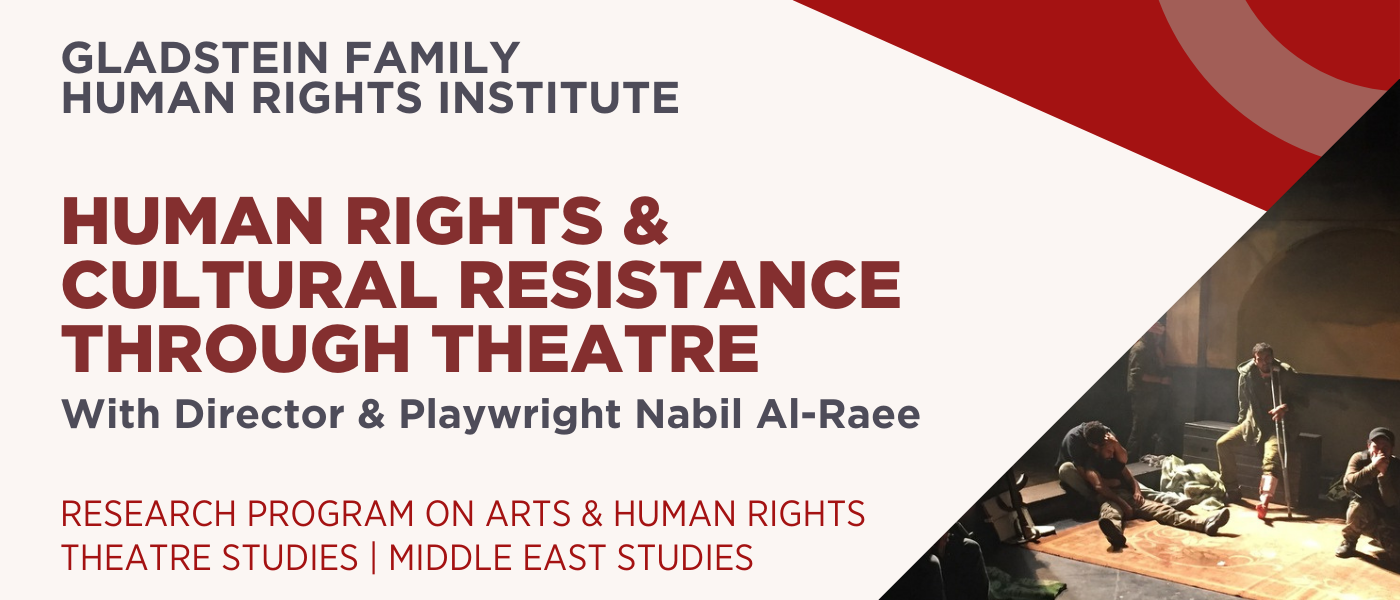
About this Event:
Nabil Al-Raee, a prominent director and playwright from the West Bank, will be visiting UConn Storrs April 17 - 19. On Wednesday, April 19, Al-Raee joins us in the Katter Theatre for a presentation entitled Human Rights and Cultural Resistance through Theatre. Al-Raee will present images and speak about several Palestinian productions including, The Siege, The Caretaker, by Harold Pinter, I Am My Own Enemy, a deconstruction of the Medusa Myth, and Suicide Note, based on Sarah Kane's 4.48 Psychosis.
The presentation will also include a public interview with Distinguished Professor Gary M. English in which he will discuss the cultural and political situation in the West Bank, the function of theatre as resistance, and the theatre methods and techniques used in theatre training within a conflict zone. Additional topics will include the use of personal narrative as dramaturgy and the development of theatre based on devised theatre practices.
This event and Nabil's residency are co-sponsored by Theatre Studies, Middle East Studies, and the Research Program on Arts & Human Rights.
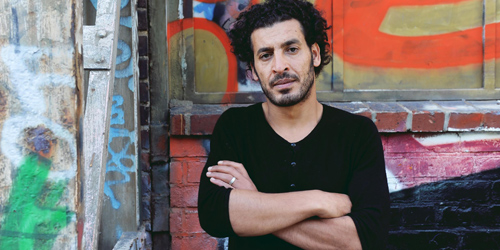
About Nabil Al-Raee:
Nabil Al-Raee served on the artistic staff of The Freedom Theatre in Jenin, West Bank, Palestine for over a decade and as artistic director from 2013 - 2019. He led the creation of a three-year curriculum in acting that, still in place, focuses on the development of he and colleague Micaela Miranda refer to as an "actor of resistance." The approach focuses on the development and performance of personal narrative within a clear political, social and personal context. Al-Raee also developed and wrote several plays including The Siege, that toured extensively in the U.K. and played at the Skirball Center at NYU. Other productions include Suicide Note, (based on 4.48 Psychosis) I Am My Own Enemy, (a deconstruction of the Medusa Myth) and an adaption of Animal Farm by George Orwell. As an actor he appeared most recently in the film 200 Meters, starring Ali Suliman, and directed by Ameen Nayfeh.
Nabil studied theatre and music in Palestine and Tunisia, is an accomplished musician, actor, director and playwright. He is also an expert on Palestinian arts, culture and politics, cultural resistance, political drama and grew up as a refugee in the Aroub Refugee Camp near Bethlehem.
Health in Ruins: The Capitalist Destruction of Medical Care at a Colombian Maternity Hospital
Tuesday, April 11, 2023
4:00 pm - 5:30 pm
Humanities Institute Conference Room
In-Person & Online
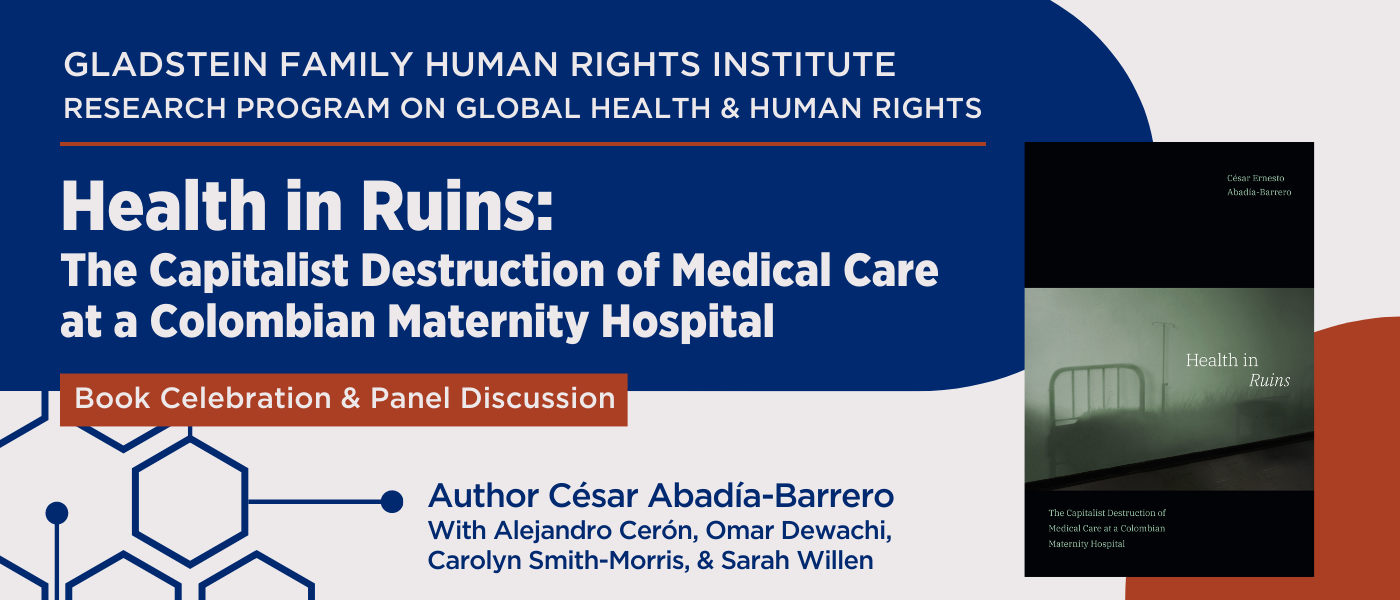
About This Event:
Join us for a panel celebrating Professor César Ernesto Abadía-Barrero’s new book, Health in Ruins, which chronicles the story of El Materno—Colombia’s oldest maternity and neonatal health center and teaching hospital—over several decades as it faced constant threats of government shutdown.
This team-based and collaborative ethnography analyzes the social life of neoliberal health policy. The book shows that health care privatization is not only about defunding public hospitals; it also ruins rich traditions of medical care by denying or destroying ways of practicing medicine that challenge Western medicine.
Our panel will include an overview of the book by Prof. Abadía-Barrero, followed by comments from three internationally renowned experts in medical anthropology and global health. The electronic version of the book is available from the UConn Library or Duke University Press.
Join us!
We kindly ask that you register to attend regardless of the modality you will join.
In-person:
Humanities Institute Conference Room,
4th Floor of Homer Babbidge Library
Reception from 3:30 - 4:00 pm.
Online:
Register for Zoom details
Reception
Those joining us in-person are encouraged to join us for a reception ahead of the event at 3:30 pm in the same room. Refreshments will be served.
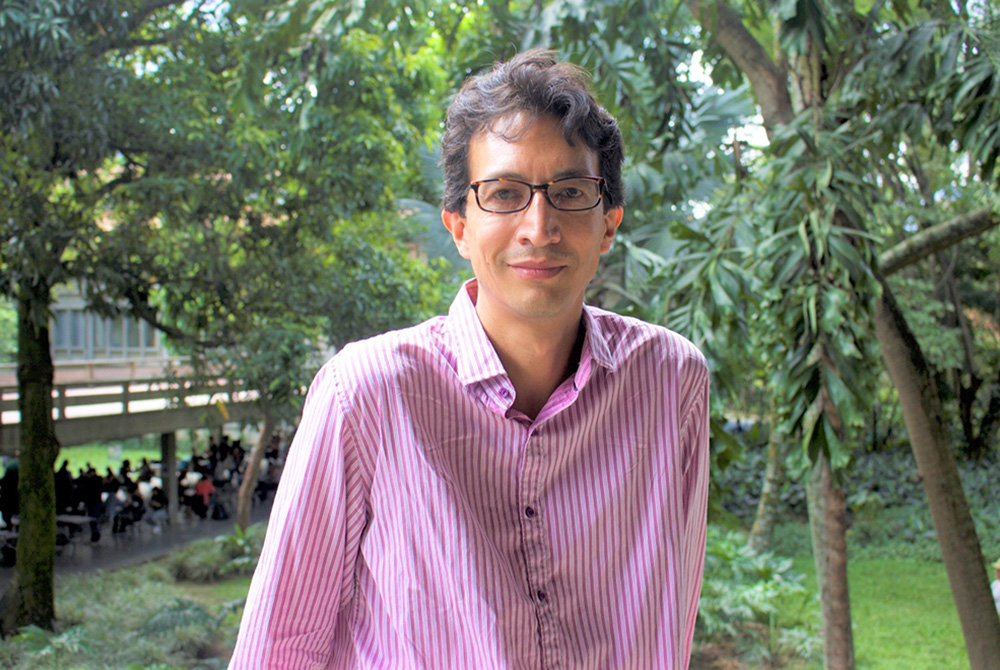
About César Abadía-Barrero:
César E. Abadía-Barrero is Associate Professor of Anthropology and Human Rights at the University of Connecticut. A medical anthropologist, his research integrates different critical perspectives in the study of how for-profit interests transform access, continuity, and quality of health care. He has conducted activist-oriented research in Brazil and Colombia, focusing on healthcare policies and programs, human rights judicialization and advocacy, and social movements in health. He is the author of I Have AIDS but I am Happy: Children’s Subjectivities, AIDS, and Social Responses in Brazil (2011, English and Portuguese editions) and Health in Ruins: The Capitalist Destruction of Medical Care (2022, English and Spanish editions). His current collaborative research follows decolonial proposals in health and wellbeing after Colombia’s 2016 peace accord.
Our Panel:
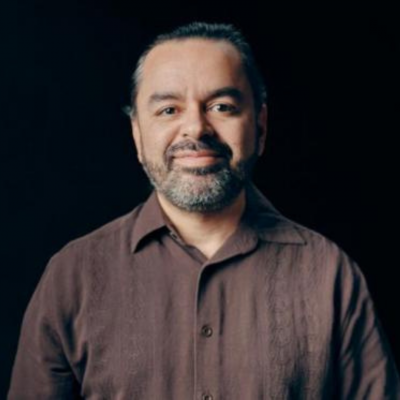
Alejandro Cerón
Associate Professor of Anthropology, University of Denver
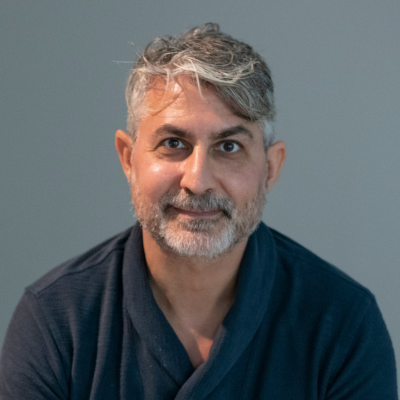
Omar Dewachi
Radcliffe Fellow, Harvard University
Associate Professor of Medical Anthropology and Global Health, Rutgers University

Carolyn Smith-Morris
Professor, School of Public Health, UT Southwestern Medical Center
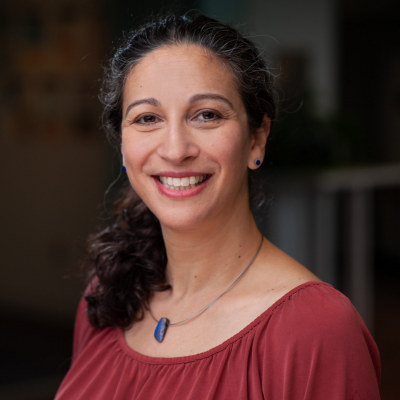
Sarah Willen (Moderator)
Associate Professor of Anthropology, University of Connecticut
Co-Director, Research Program on Global Health & Human Rights
The Research Program on Global Health and Human Rights serves as a forum for UConn’s scholarly community interested in global health, human rights, and health inequities. This program is an integral part of the Human Rights Institute, seeking to understand human rights based approaches to health challenges.
Human Rights Film+ Series: After Zero Tolerance
Wednesday, March 22, 2023
5:00pm - 6:30pm
In-Person Event
Konover Auditorium, The Dodd Center for Human Rights
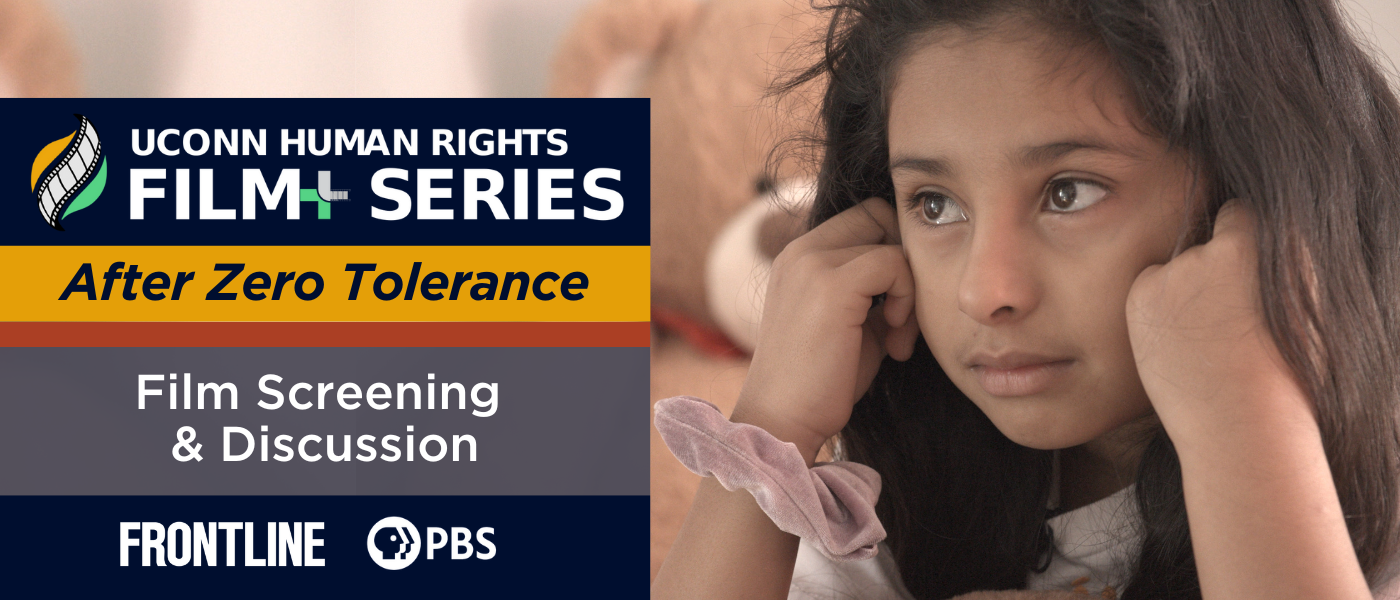
About ‘After Zero Tolerance’
Directed by Emmy™ Award-winning filmmaker and UConn DMD Associate Professor Oscar Guerra, After Zero Tolerance brings a compelling and intimate perspective to the ongoing debate around US immigration policy and the treatment of families and children at the border. The film follows the story of Anavelis, who crossed the U.S.-Mexico border with her then-six-year-old daughter, Genesis, in 2018. They were forcibly separated by law enforcement at a border camp, and Anavelis was deported back to Honduras without Genesis – kicking off a years-long quest to reunite with her daughter.
This event will feature a full screening of After Zero Tolerance (2022, 29 minutes), followed by a discussion with Oscar Guerra, Ann Garcia, Nan Schivone, and Anavelis.
Our Guests:
- Prof. Oscar Guerra, After Zero Tolerance filmmaker and Associate Professor, UConn Department of Digital Media & Design
- Ann Garcia, Attorney, National Immigration Project
- Nan Schivone, Legal Director, Justice in Motion
- Anavelis, After Zero Tolerance film protagonist
Moderator:
- Prof. Catherine Masud, Assistant Professor in Residence, UConn Gladstein Family Human Rights Institute and Department of Digital Media & Design
For a preview of the film, watch the above excerpt (3 minutes).
After Zero Tolerance is a FRONTLINE production with Five O’Clock Films in association with Guerra Productions, the Syracuse University S.I. Newhouse School of Public Communications and the University of Connecticut. The writer, producer and director is Oscar Guerra. The senior producer is Frank Koughan.
This event is sponsored by the Gladstein Family Human Rights Institute, Dodd Impact, and the Department of Digital Media & Design. We kindly ask you register to join us.
Reimagining Gender Violence as Torture
Tuesday, April 4, 2023
4:00 pm - 5:30 pm
Konover Auditorium
The Dodd Center for Human Rights
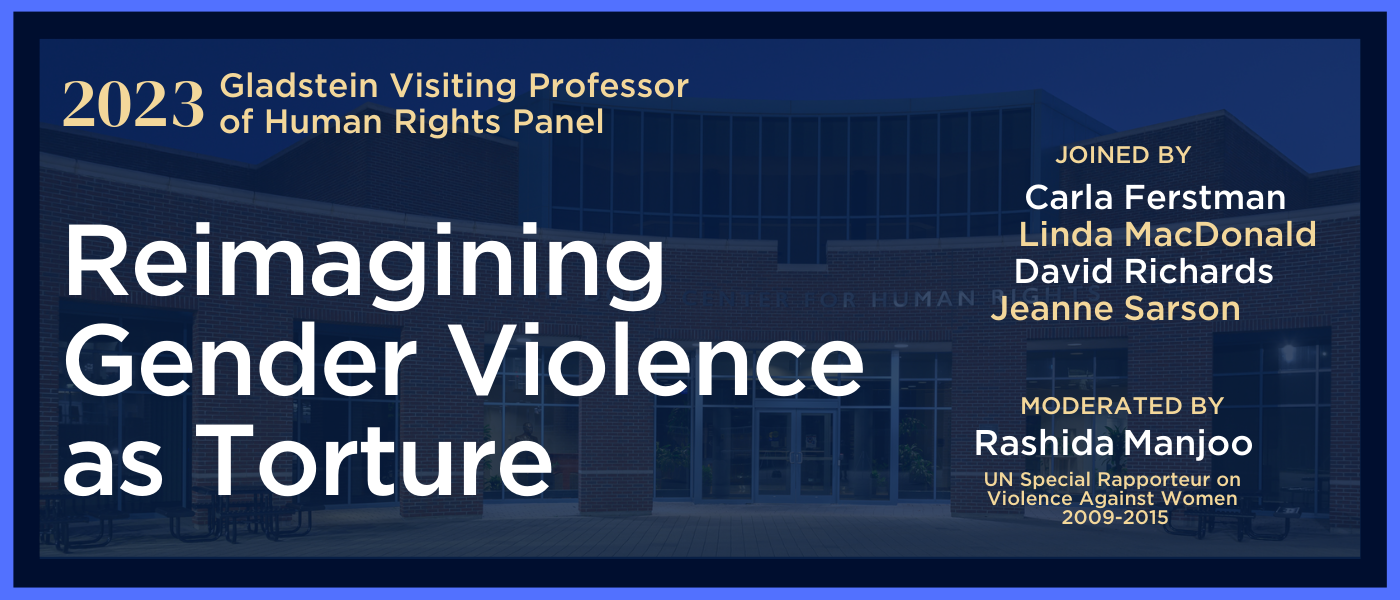
About This Event
Is gender-based violence (GBV) different in any important way from what is understood as torture?
The participants in this forum, basing their arguments on decades of experience in law, clinical work, activism and scholarship, assert that understanding GBV as torture is essential for furthering public understanding of the true nature of GBV, and importantly, for improving the response and redress measures for victims.
This expert panel is one in a series of public engagements of the 2023 Gladstein Visiting Professor of Human Rights Rashida Manjoo, the former United Nations Special Rapporteur on violence against women and girls, its causes and consequences.
Join us!
This event is free and open to the public, we kindly ask that you RSVP.
Please note that this event is in-person only.
Reception
A catered public reception will follow in the Dodd Lounge. All are welcome!
Associated Workshop – April 5 – Violence Against Women and the Normative Gap
For UConn Faculty & Graduate Students
Join Professor Manjoo for an interactive workshop on Violence Against Women and the Normative Gap.
April 5, 2023
1:30 pm - 3:00 pm
The Dodd Center for Human Rights Lounge
Interested in joining us? Please confirm your attendance with David Richards.
About Our Experts
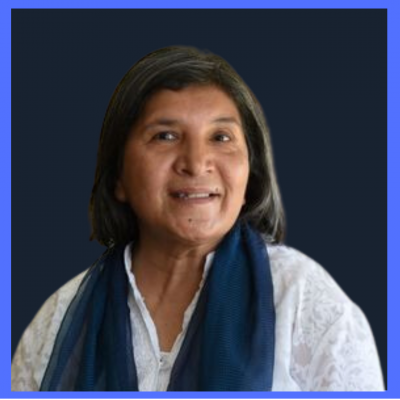
Rashida Manjoo
Rashida Manjoo is Professor Emeritus at the University of Cape Town where she taught for many years in the Department of Public Law and also convened the LLM Human Rights Program. She continues to supervise PhD candidates in the Faculty of Law.
Professor Manjoo has over four decades of experience in social justice and human rights work both in South Africa and abroad. Until July 2015, she held the position of United Nations Special Rapporteur on Violence against Women, its Causes and Consequences, a post she was appointed to in 2009 by the United Nations Human Rights Council. Her UN work over six years has included monitoring and reporting on States' compliance in responding to and preventing violence against women, its causes, and consequences, both generally and in different country contexts. She has particularly highlighted the interaction of interpersonal, communal, institutional, and structural factors that negatively impact the interdependence and indivisibility of the human rights of women, and the challenges of the normative gap in international law on the issue of violence against women.
Professor Manjoo is the former Parliamentary Commissioner of the Commission on Gender Equality, an institution created by the Constitution of South Africa, with a mandate to oversee the promotion and protection of gender equality and women's rights. She has also been involved in social context training for judges and lawyers, where she has designed both content and methodology.
She has authored several journal articles, book chapters and reports, including the co-edited books Women’s Charters and Declarations: Building another World; The Legal Protection of women from violence - normative gaps in international law; Criminal Justice and Accountability in Africa; and Violence against Women: Law, Policy, and Practice.
Rashida Manjoo is the 2023 Gladstein Visiting Professor of Human Rights at the University of Connecticut Gladstein Family Human Rights Institute.

Carla Ferstman
Carla Ferstman joined Essex Law School in January 2018. She is a barrister and solicitor (British Columbia, 1994). DPhil (Public International Law) (Oxon); LL.M (NYU); LL.B (UBC); BA (Philosophy) (Western). She was Fernand Braudel Fellow (2022) at European University Institute (Florence); visiting professional (2015) at Centre for International Governance and Justice at RegNet, Australian National University (Canberra); and Jennings Randolph Senior Fellow (2012/13) at the United States Institute of Peace (Washington, DC).
Carla is a member since 2018 of the Council of Europe's Expert Council on NGO Law (a specialist body that provides commentary and expertise on the regulation of civil society activities throughout the Council of Europe). She is also on the JRR-UN Women SGBV Justice Experts Roster and on the Advisory Committee of Lawyers for Justice in Libya. She was a judge on the Aban Tribunal, an International ‘People’s Tribunal’ established to investigate atrocities alleged to have taken in place in Iran during the November 2019 protests, which held oral hearings in November 2021 and February 2022 and issued its final judgment in November 2022.
Carla has worked in the human rights field for the bulk of her career to date. After a brief period in private practice in Canada as a criminal defence lawyer, she began working internationally, first for the UN High Commissioner for Human Rights in Rwanda and thereafter, at the International Secretariat of Amnesty International in London. She served as the Executive Legal Advisor of the Commission for Real Property Claims of Refugees and Displaced Persons in Bosnia and Herzegovina (1999-2001), a mass claims body established pursuant to the Dayton Peace Accords to re-establish property rights and assist displaced persons to return home. In 2001, she joined REDRESS, a nongovernmental human rights organization which pursues justice on behalf of victims of torture and related international crimes, first as Legal Director and from 2004 - 2018 as Director. During her tenure, REDRESS won the MacArthur Foundation Award for Creative and Effective Institutions.
In 2022, Carla won the Essex Faculty of Arts and Humanities Supervisor of the Year award.
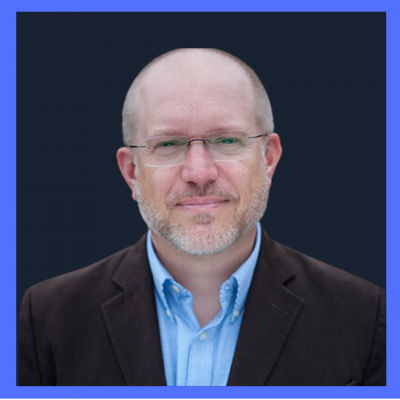
David Richards
David Richards is an Associate Professor at the University of Connecticut, with appointments in both the Department of Political Science and the Gladstein Family Human Rights Institute, where he is Director of Graduate Studies.
David’s body of work on human rights includes more than two-dozen studies of: gender-violence law, the measurement of government respect for human rights including torture, US public support for torture, and the effects of globalization on human rights respect, among others. He has also authored reports for governments and international organizations.
Some current projects include studies of: torture in the time of COVID; sexual violence as torture; school infrastructure as a children’s right; the language of torture in narratives; and best-practices in teaching college students about torture.
David Richards is likely best known as the co-founder/director of the now-archived Cingranelli-Richards (CIRI) Human Rights Data Project. Funded multiple times by the National Science Foundation and World Bank, among others, this project provided information on the level of government respect for 16 human rights in 196 countries from 1981 to 2012. The CIRI Project’s data have been used by international organizations such as the United Nations and World Bank, and in 170 countries by governments, media, activists, businesses, scholars, and students.
David’s book (with Jill Haglund, Univ. of Kentucky) Violence Against Women and the Law (Routledge 2015), examines the strength of laws addressing four types of violence against women–rape, marital rape, domestic violence, and sexual harassment–in 196 countries from 2007 to 2010. Of central importance is the question of why these laws exist in some places and not others, and why they are stronger or weaker in places where they do exist. The book’s original data allow the testing of various hypotheses related to whether international law drives the enactment of domestic legal protections. Also examined are the ways in which these legal protections are related to economic, political, and social institutions, and how transnational society affects the presence and strength of these laws.

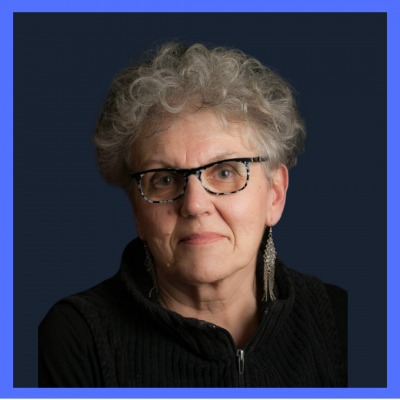
Linda MacDonald & Jeanne Sarson
Linda MacDonald and Jeanne Sarson are feminist human rights activists living in Nova Scotia, Canada. For 30 years they have focused their work on supporting women who detail being victimized by family and non-family-based non-State torturer-traffickers with organized criminal informal networks with like-minded others. As independent researchers and scholars with many published articles, book chapters, and their 2021 book, “Women Unsilenced: Our Refusal To Let Torturer-Traffickers Win,” which shares their developed theory, models, and non-State torture (NST) victimization-traumatization informed care, expanding this work to name the infliction of consequential conditioned suicide-femicide victimizations. Their participatory research represents the voices of women from Canada, the U.S., Mexico, the UK, Western Europe, the Philippines, Australia, New Zealand, South Africa, and Papua New Guinea, plus women who identify torture victimizations in prostitution and pornographic exploitations. Since 2004 they have participated in non-governmental organizational panels at the United Nations in New York, Geneva, and in Vienna where they are involved in a Working Group addressing non-State torture (NST) to create global education with the aim to eliminate all forms of non-State torture of women and girls. They develop resources, provide educational presentations and webinars nationally and internationally, including in the UK, the U.S., Spain, Portugal, and Bosnia-Herzegovina.
If you require an accommodation to participate in this event, please contact humanrights@uconn.edu.
Rwanda’s Restorative Journey: Living Alongside Your Enemy
Tuesday, January 24, 2023
4:00 pm - 5:30 pm
Konover Auditorium
The Dodd Center for Human Rights
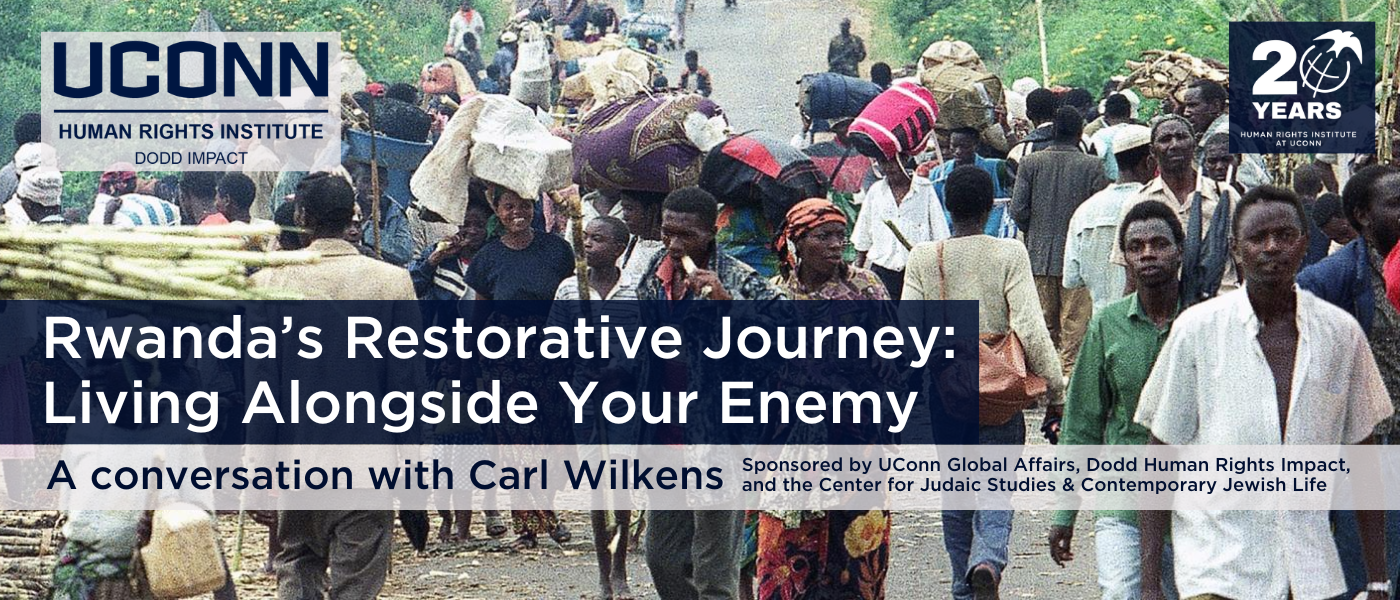
About This Event:
Three days into the 1994 Rwandan genocide against the Tutsi, Carl and Teresa Wilkens made the heart wrenching decision that she would take their young children to safety, and he would stay at their home in Kigali and try to help. Neither had any idea that during the next 100 days more than a million people would be slaughtered, often by their neighbors.
Through the sharing of first-hand accounts of the catastrophic 1994 genocide and the country’s rebuilding journey that followed, Carl will discuss restorative justice and practices and engage us in guided conversations about what those practices mean today, particularly in the realm of rebuilding trust.
Join Us:
This event is in-person only in the Konover Auditorium of The Dodd Center for Human Rights. All are welcome!
Register Here.
It is co-sponsored by UConn Global Affairs, the Center for Judaic Studies & Contemporary Jewish Life, and Dodd Human Rights Impact.
About Carl Wilkens

As a humanitarian aid worker, Carl Wilkens was one of two Americans who refused to leave Rwanda as thousands of expatriates and UN soldiers fled the country in the face of what is now known as the 1994 Rwandan genocide against the Tutsi. Working together with Rwandan colleagues they brought food, water, and medicine to orphans trapped around the city.
These days Wilkens travels around the globe using the transformative process of storytelling and restorative practices to explore topics such as polarization, harmful conflict, and belonging. He is the Co-founder and Director of World Outside My Shoes.
"I'm Not Leaving"
In advance of the event, we encourage you to watch the 40-minute documentary, I'm Not Leaving, available in full & free on YouTube.
This 40-minute documentary shares snapshots of the genocide through the eyes of Carl and his wife Teresa along with: Gasigwa, a courageous Rwandan colleague whose home became a safe-house, Laura from the US Embassy who wrestled with Washington, DC to not abandon their mission, and Phil, one of the handful of UN peacekeepers who volunteered to stay in Rwanda and were tenuously hanging on to save lives. Their gut-wrenching choices and unexpected alliances formed during the 100 days of slaughter leave us with a surprising sense of hope and agency.
If you require an accommodation to participate in this event, please contact humanrights@uconn.edu.